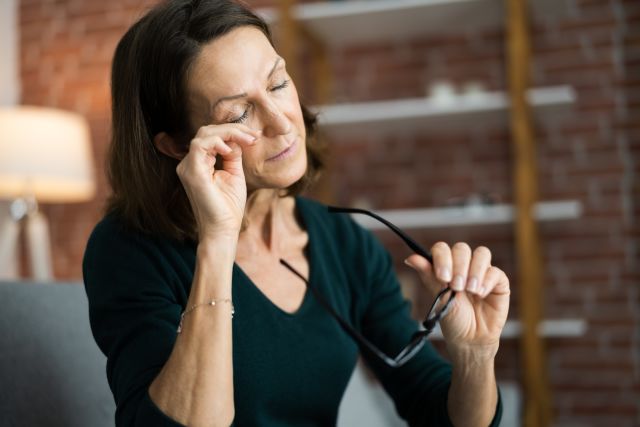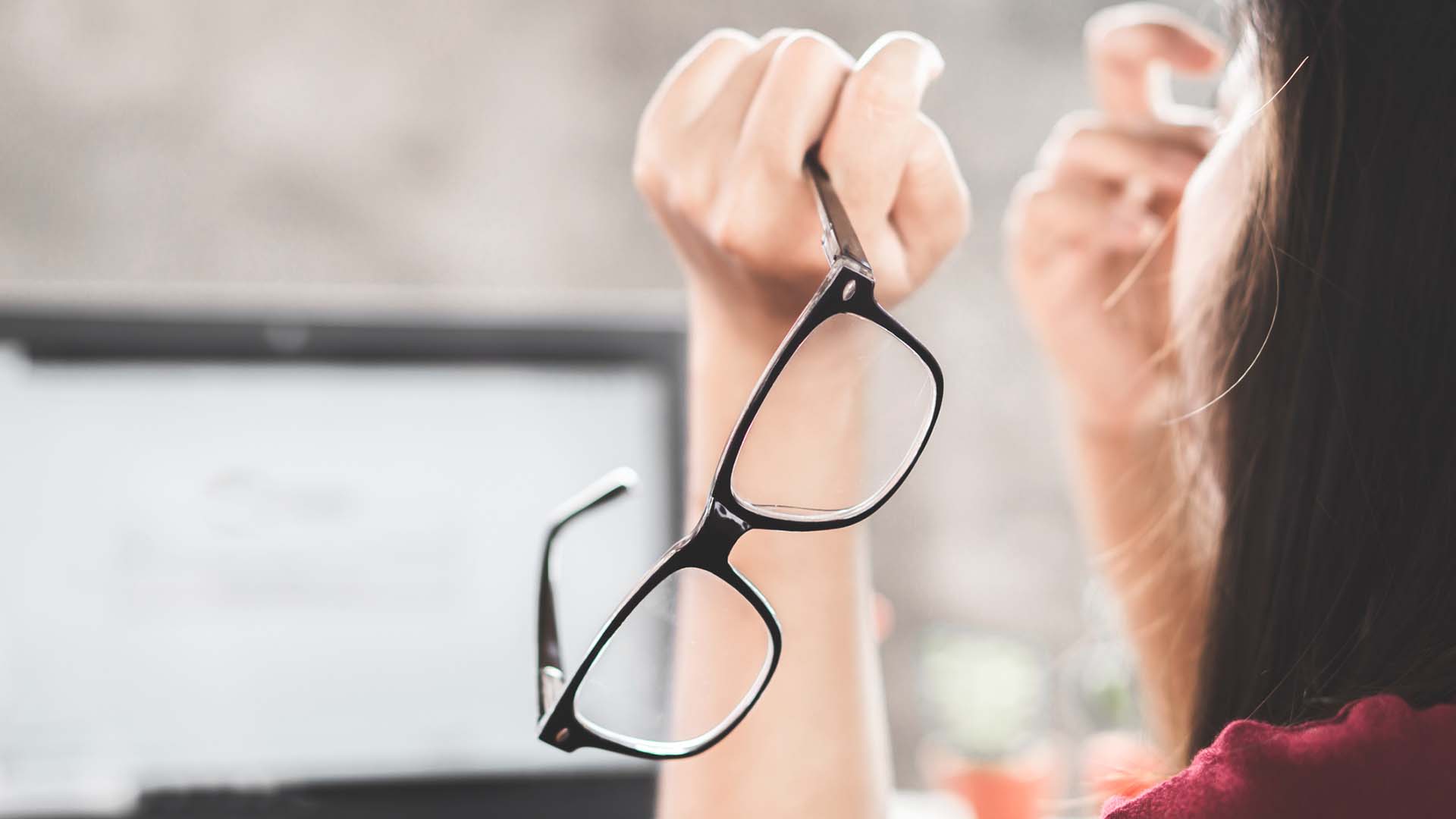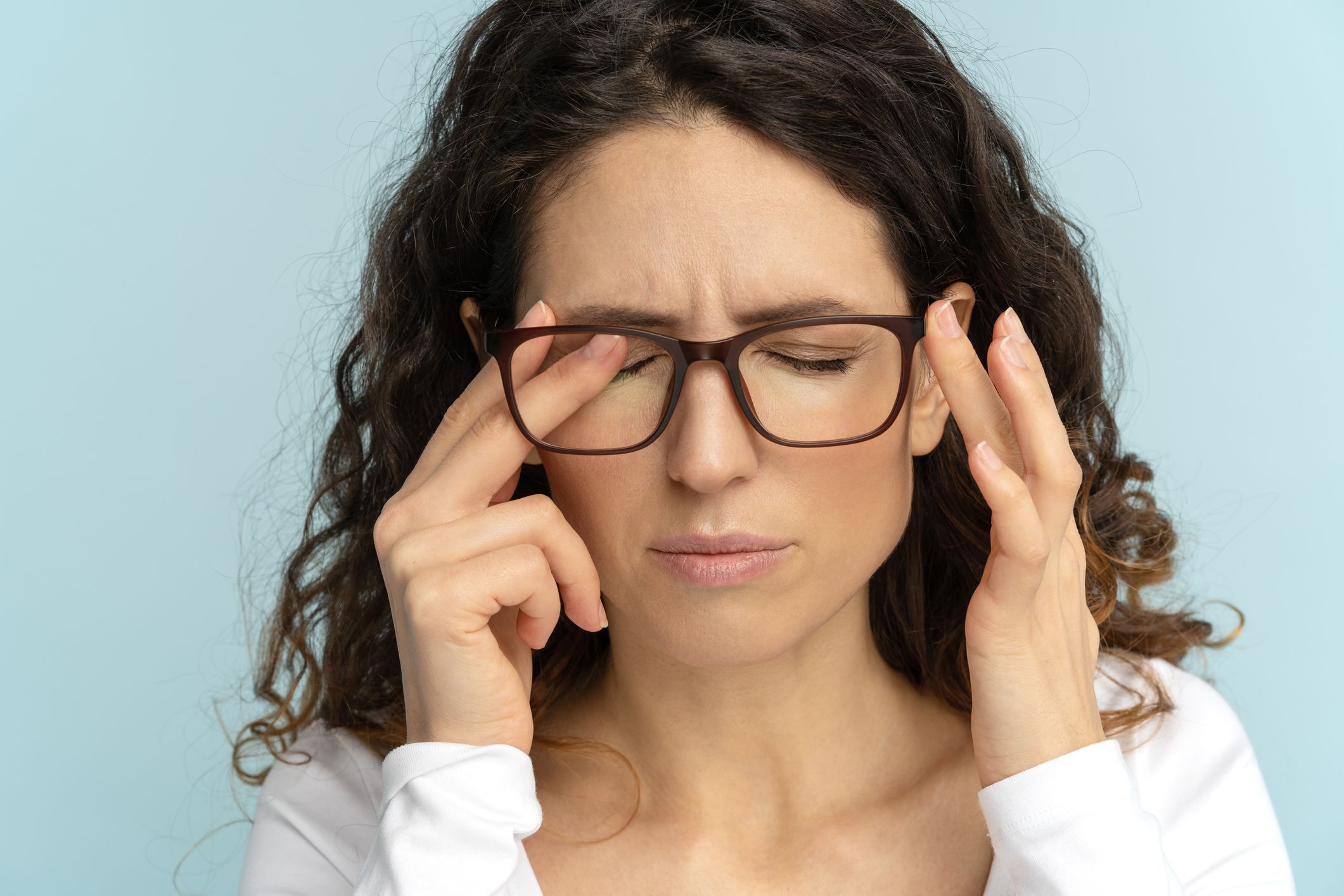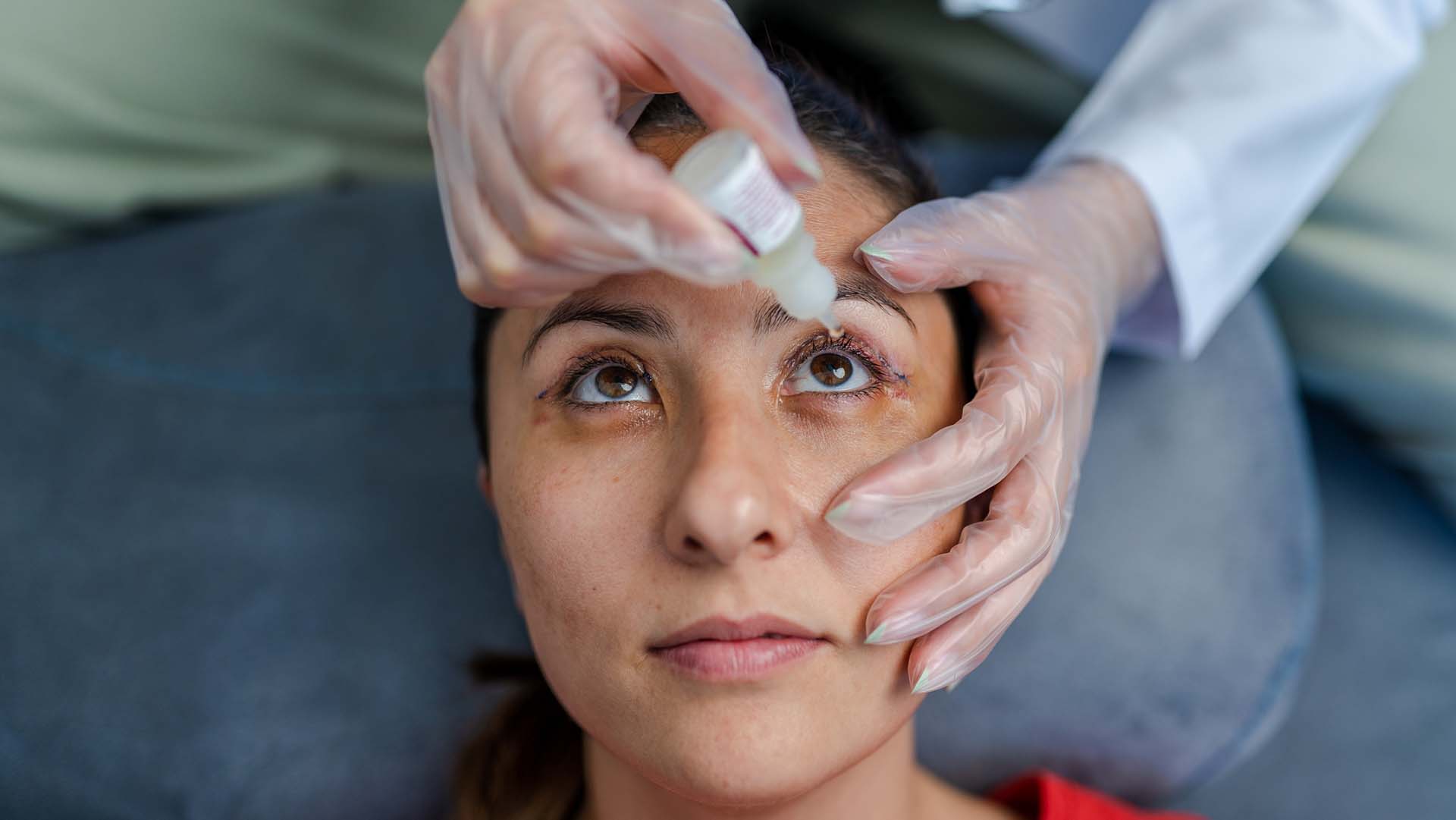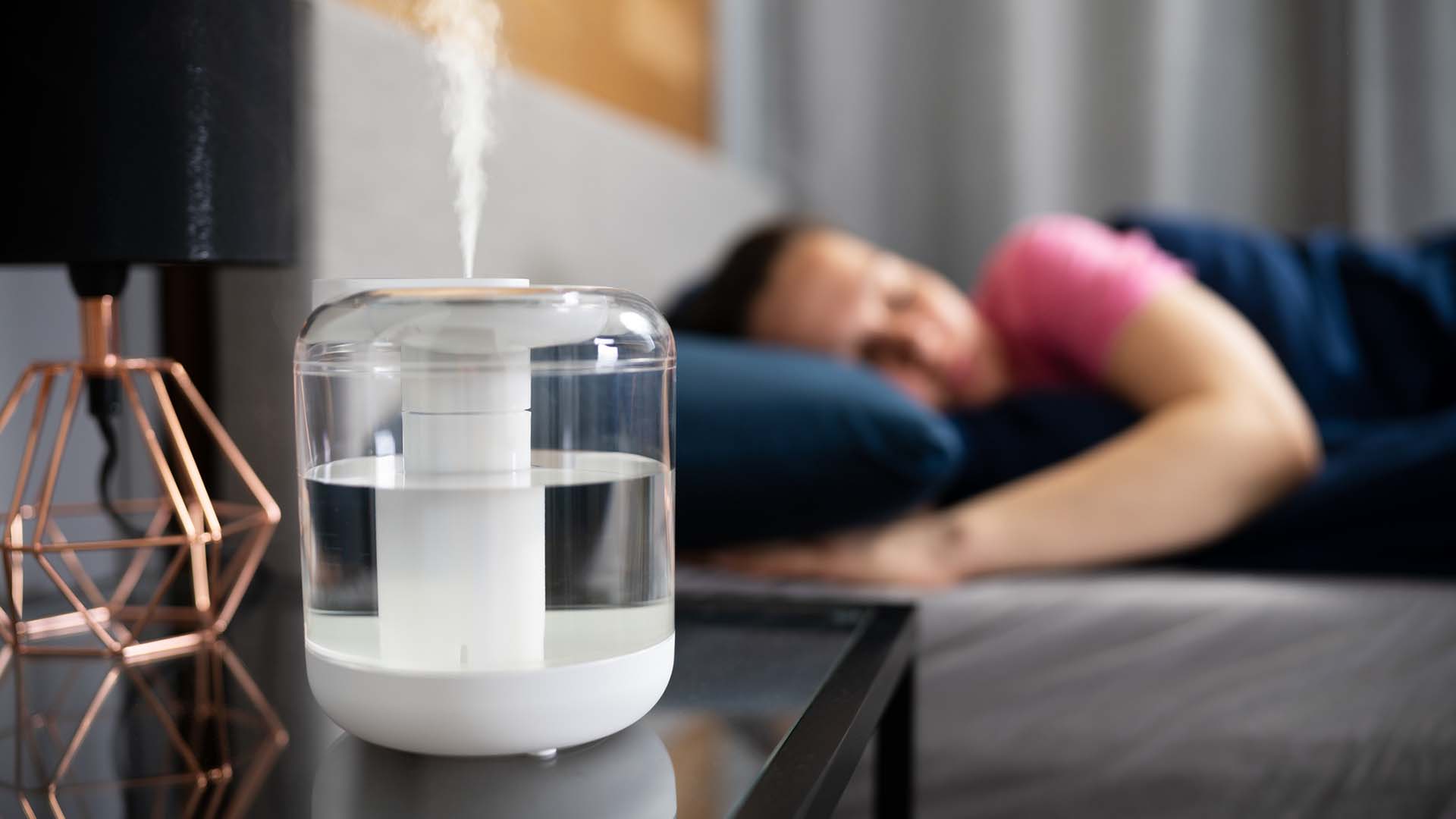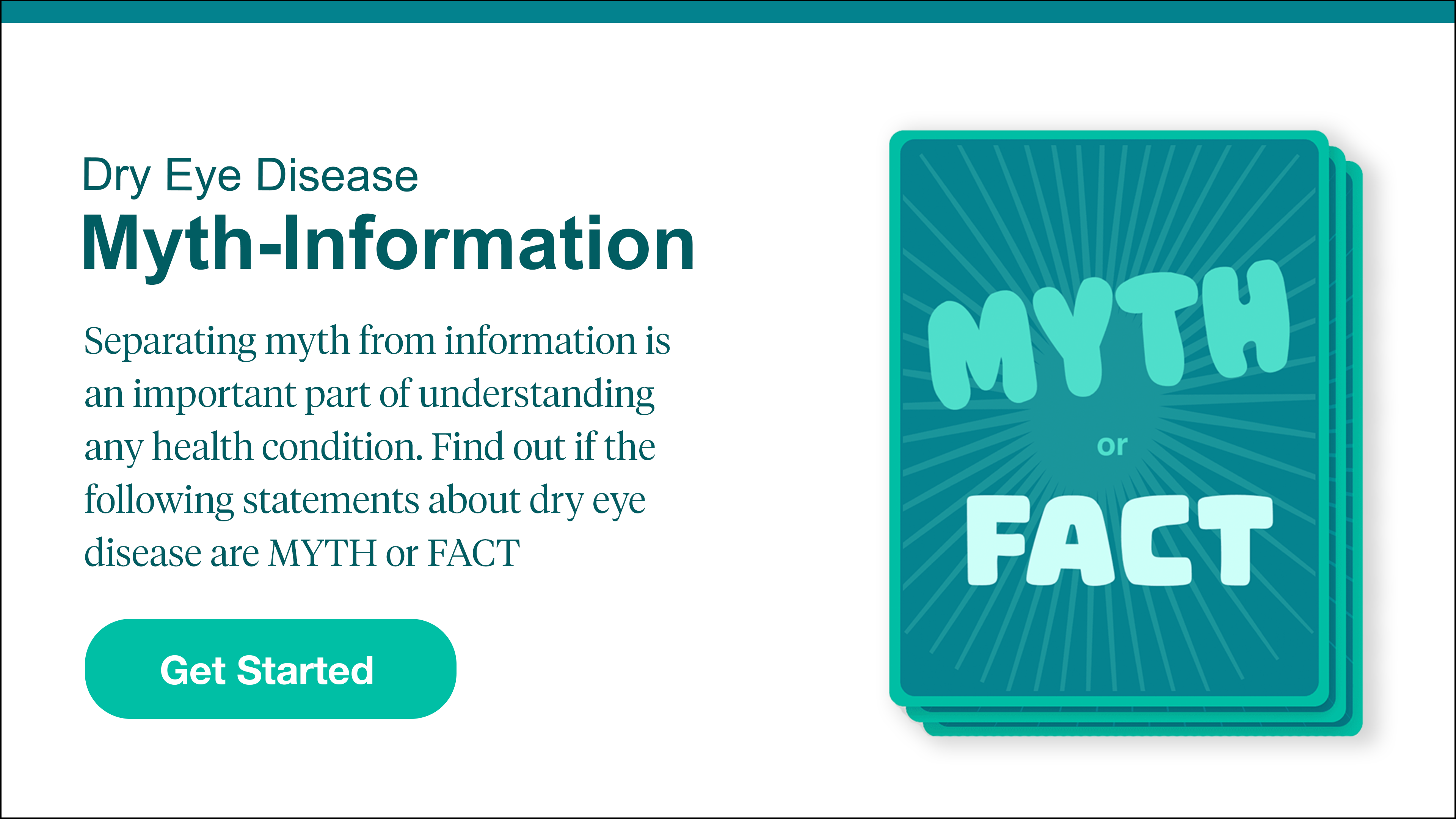Updated on August 13, 2024
As we age, normal tear production tends to decrease, which can lead to dry eyes. Paying attention to simple things—such as the food you eat, the medications you take, and the environments you spend time in—may help prevent dry eyes. But in some circumstances, dry eyes signal a condition that requires treatment by a healthcare provider (HCP).
Is your tear function interrupted?
Your body continuously produces tears to protect your eyes and help keep them comfortable. A decrease in normal tear production or an interruption in the distribution of your tears can lead to dry eyes.
A decrease in tear production may occur as a natural part of aging and is particularly common among postmenopausal women. It may also be a result of other factors, such as allergies, dry weather, or the use of cosmetics or contact lenses. Eyes can also feel dry when tears are not distributed well, such as when you stare at a computer screen for long hours without blinking often.
The result is eyes that burn, sting, or feel scratchy, tired, or strained. Whatever the cause of your dry eyes, there are self-care methods you can try in order to help your eyes feel comfortable and keep your vision clear.
What can you do about dry eyes?
For many people, a bit more awareness about the habits and environments that can cause problems is enough to help keep their eyes clear and comfortable. Try these strategies:
Make your world more humid
If your dry eyes are due to dry air, running a portable humidifier in your home may alleviate symptoms by adding moisture to dry indoor environments, especially during the winter. And wearing a wet gauze eye mask while sleeping can keep eyes moist and prevent tear evaporation.
Tip: If possible, try to use lubricant eye drops before you engage in activities that are visually demanding, such as staring at a computer screen, driving, and reading.
Eat more eye-friendly foods
Although it's rare in developed countries, dry eyes can be caused by a lack of vitamin A. Either way, ensuring that you get the optimal amount of vitamin A can boost your overall eye health. Vitamin A-rich foods include carrots, sweet potatoes, cantaloupe, pumpkin, and mango. Other nutrients that may be good for your eyes include lutein and zeaxanthin.
Take note of medication side effects
Certain prescription and over-the-counter medications, such as antihistamines, diuretics, sleeping pills, beta blockers, and pain relievers can reduce your body's ability to create lubricating tears. If you experience dry eyes as a medication side effect, ask your HCP about alternatives or find out if you are a candidate for lubricant eye drops that you can use while taking your medication.
Wear sunglasses
Protecting your eyes when you are outdoors on bright or windy days not only shields your eyes from harsh ultraviolet (UV) light but also helps keep eyes moist by preventing tear evaporation. Wraparound sunglasses may help minimize the wind's drying effect.
Rest your eyes often
If you spend several hours in front of the computer, give your eyes a break now and then. Look away from the screen, focus your attention on an object that is more than 8 feet away, and concentrate on it for at least 5 seconds. Repeat this exercise a few times every hour. Also, blink frequently to help evenly distribute lubricating tears.
When to see a healthcare provider
If these at-home strategies do not improve dry eyes after a few days, see an HCP—especially if your dry eyes are red and painful or are accompanied by swollen, stiff, and/or painful joints, dry mouth, or discharge on your eye or eyelid. It is important to rule out underlying medical conditions that can cause dry eyes, such as rheumatoid arthritis, lupus, Sjogren's syndrome, or dry eye disease.
